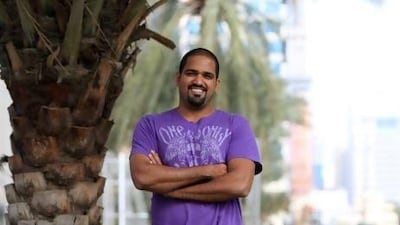ABU DHABI // When Ahmed Al Hashemi renewed his passport, he left the government office one letter lighter. Now he is Ahmed Al Hashmi.
The 29-year-old Emirati did not notice he was missing an "e" until he arrived home and looked at the document.
He is one of many UAE nationals in the past two years who have left the passport office with a changed transliteration of their names.
The differences are minor: a letter removed, a rearrangement of vowels - but the effort to standardise a chaotic system has implications and benefits for national security, banking, travel, property ownership, medical records and more.
"We were told it was a government policy to unite all the family names to make it easier for them when they collect data," said Hamda Al Mheiri, formerly Al Mehairi, an Abu Dhabi resident whose spelling was changed when she renewed her passport a few months ago.
A Ministry of Interior spokesman said there was a committee to address the issue, but declined to comment further.
At the heart of the issue is that Arabic contains characters with no Roman equivalent, and has a different vowel system. As a result the same name can be spelled in different ways in Roman letters, even within the same family. Previously, Ms Al Mheiri and her father had used the name Al Mehairi, while her brother had used Al Muhairy. The inconsistencies in Romanised spellings can lead to numerous problems for government officials and for ordinary people, said Dr Sattar Izwaini, assistant professor of translation at the American University of Sharjah.
Keen to solve the problem, Dr Izwaini and Dr Abdulrahman Al Hashemi organised a symposium on the issue in 2009, calling for a unified system. Neither academic is connected with the committee overseeing the process.
"We have to have a standard," said Dr Al Hashemi, learning and development adviser for the National Drilling Company. "Don't leave it like this, it's really confusing."
Participants in the symposium recommended a phased implementation plan with research, education and publicity.
The implementation of the spelling changes on Emirati passports was something of a surprise.
Dr Al Hashemi noticed it when he renewed his own passport; technically he is now Dr Al Hashmi.
"I am not quite sure if this standard is sustainable or not," he said. "This is an area of challenge and it has to be thoroughly discussed by linguists, translators, anthropologists, sociologists."
Dr Izwaini said it was good that authorities recognised the problem and had set out to solve it.
For some, the change is welcome. "I totally agree with it," said Ms Al Mheiri. "Even when we travel, sometimes the father's name is different from the children's spellings. So now when we have one spelling it solves many problems."
The changes create challenges for Emiratis with visas or official documents that carry their name in Romanised form.
When Omair Al Seiari - formerly Al Sayari - renewed his passport in 2011, he was also applying to business schools in the United States. He had already taken the GMAT entrance exam.
"My GMAT scores had a different last name from my passport," said Mr Al Seiari, 32, a chemical engineer from Abu Dhabi. When he explained the reason, no one was convinced.
"When a new baby is born, it's easier to accept. But for adults who have degrees, drivers' licences, established identities in different countries in different parts of the world, it's really hard to explain, 'Oh, the government changed the spelling of my last name'."
It is believed that Emiratis with specific visas or otherextenuating circumstances may be exempt from the changes.
Mr Al Hashmi has not run into problems yet. He still spells his name "Al Hashemi" in informal contexts and he has not changed his other documents, although he believes he will have to do so eventually.
* The article has been corrected since it was first published to make it clear that it was Mr Ahmed Al Hashmi who was being referred to in the last paragraph, not Dr Abdulrahman Al Hashemi.

